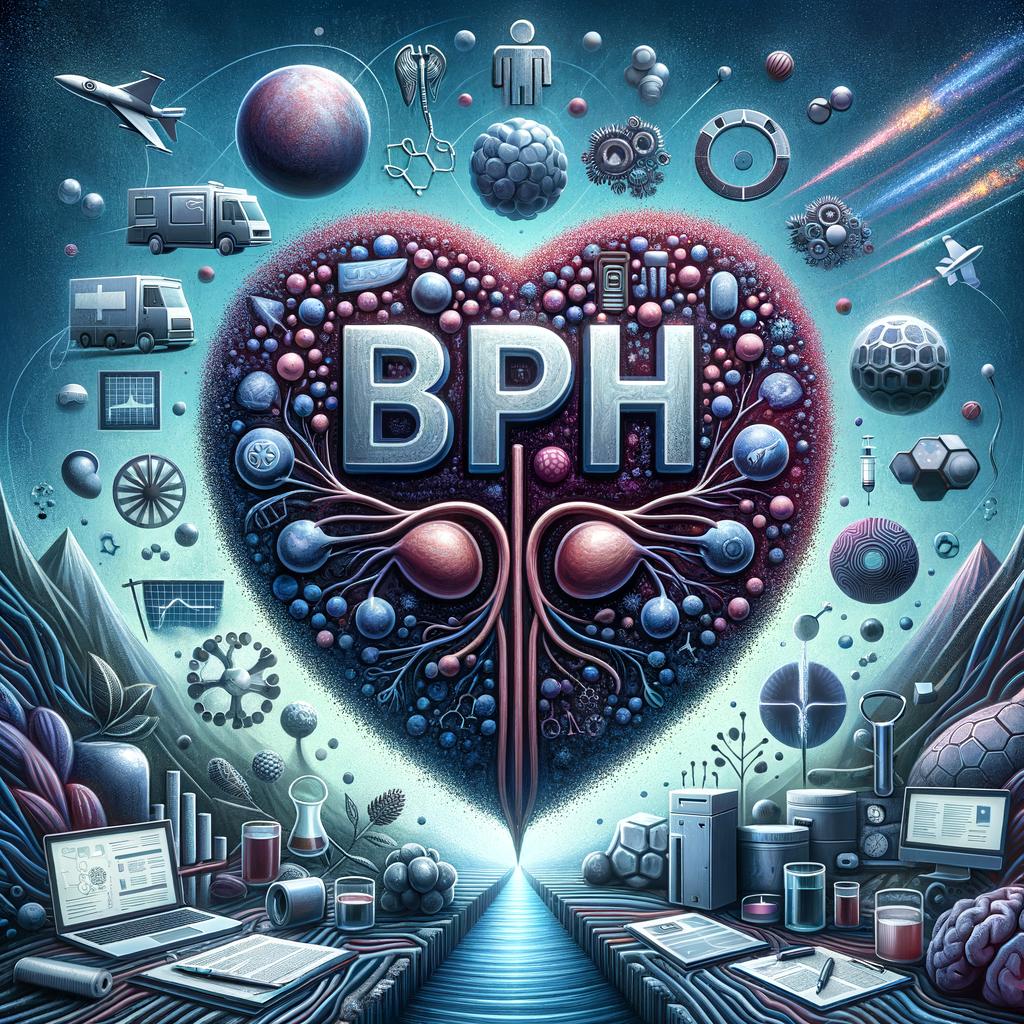
What are the treatment options for BPH?
Everything you need to know about BPH: The Hidden Threat to Prostate Health
Believe it or not, the three letters of BPH, standing for benign prostatic hyperplasia, are a common and crucial topic in the field of men’s health. Simply put, BPH refers to a non-cancerous enlargement of the prostate gland, a common condition as men age. Crossing the threshold of technical lingo, this blog weaves the labyrinth of BPH, from its faint signs and unforeseen implications to methods of managing and mitigating its effects. It shines a spotlight on this issue, empowering men everywhere to foster a healthier future for their prostates.
The Core Concept: BPH Uncovered
If we were to make a simile out of BPH, it would be like navigating through a tunnel that keeps narrowing as you move forward. This is because an enlarged prostate gland, a hallmark of BPH, can compress the urethra, obstructing urine flow and causing discomfort. The condition is a veiled villain, often disguising itself through unremarkable symptoms like frequent urination or difficulty in starting and stopping while peeing.
Winds of Change: The Evolution of BPH
BPH is not a sudden storm but a gradual shift in the landscape of men’s health. The condition typically begins to show its subtle signs after the age of 40 and becomes notably prevalent in men over 60.
Cutting Through the Confusion: Differentiation from Prostate Cancer
BPH presses on the door of dilemma. It’s not prostate cancer, nor is it a catalyst for the disease, but it does share some similar symptoms, leading to confusion and concern. In this stark contrast between cancer and BPH, the devil, as they say, is in the details. A key difference is that Prostate-Specific Antigen (PSA) levels tend to rise much more in prostate cancer than in BPH.
Bridge the Gap: The Value of Early Detection
Attuned to the whispers of our bodies and respectful of changing physiological rhythms, early detection of BPH can be the silver lining in this health storyline. Regular medical check-ups play a vital role in catching BPH early and alleviating concerns.
Soothing the Sting: Management and Treatment of BPH
Don’t let BPH tarnish the golden years. This grey cloud is not without its silver linings. Lifestyle changes and medical treatments can help manage the effects of BPH. Dietary tweaks, regular exercise, and timely medications can all help to lessen the effects of this condition.
Unveiling the Veil: The Role of Surgery
When non-invasive interventions aren’t enough to mitigate BPH, the scalpel becomes the light at the end of the tunnel. It’s an antithesis between reluctant acceptance and active intervention. Surgical procedures can help in reducing the size of the prostate gland, restoring the urethra’s freedom and the patient’s comfort.
A Forward Leap: The Importance of Awareness and Education
Understanding BPH, unravelling its mysteries, and undressing its misconceptions isn’t just about physiological details, it’s about promoting overall well-being. The knowledge diffuses into conversations, and awareness blossoms across generations of men, shattering the silence surrounding men’s health.
Open Communication: The Key to Better Prostate Health
Clasping the conversation around prostate health and BPH is a step towards combating the condition’s grip. Honest discourse with healthcare professionals, as well as personal mindfulness to body changes, are valuable allies in the battle against BPH.
A Healthy Future: Looking Beyond BPH
BPH is not a definitive diagnosis but a speed bump on the highway of health. It challenge is to accept, adapt, and advance. With vigilant personal care, BPH can be managed and even reduced, allowing you to live healthy, fulfilling, worry-free lives.
Frequently Asked Questions
1. Does BPH increase the risk of prostate cancer?
No, BPH is a benign condition and does not increase the risk of prostate cancer.
2. What is the main cause of BPH?
The exact cause is unknown, but it is believed to be related to age and the male hormone, testosterone.
3. Can BPH be cured?
There is no absolute cure for BPH, but the symptoms can be managed with lifestyle changes, medication, and sometimes surgery.
4. Can diet affect BPH?
Yes, a healthy diet and regular exercise can help manage the symptoms of BPH.
5. Is BPH a serious condition?
While BPH is not life threatening, it can greatly impact one’s quality of life. Consulting with a healthcare provider is recommended.


